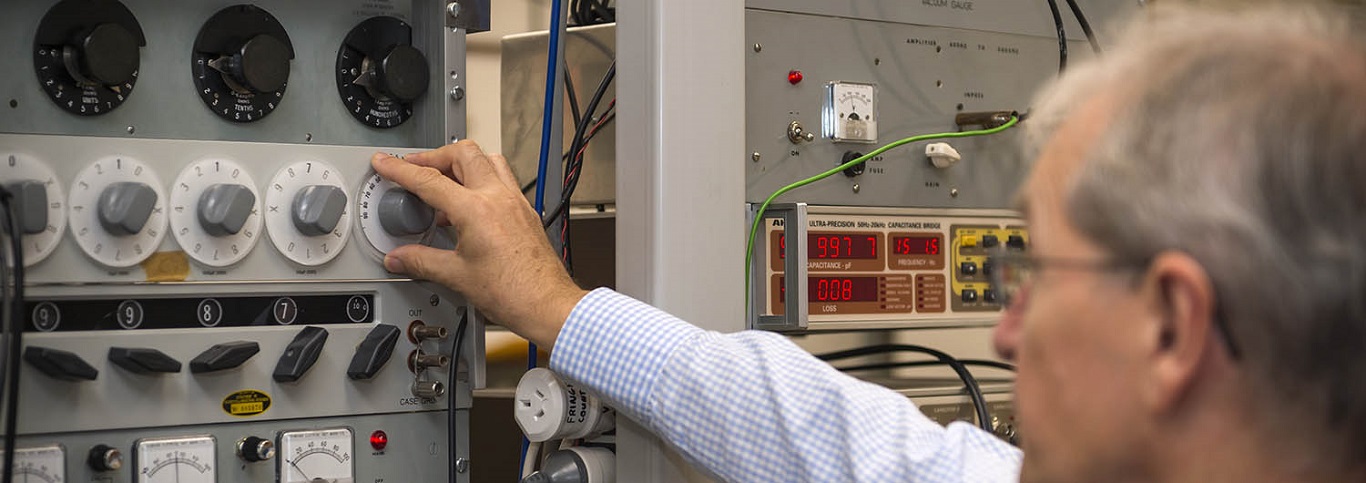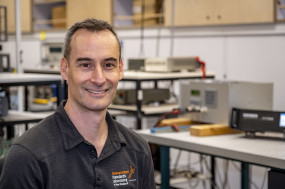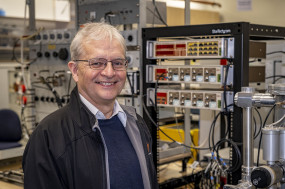Traceable Electrical Energy Metering Training
Training course
This course is focused on understanding the steps required to make traceable measurements and will include training in the calculation of measurement uncertainties. Students will enhance their competence in ensuring that metering components and installations are meeting the metrology requirements of Part 10 of the Electricity Industry Participation Code.

This 2 day course is focused on understanding the steps required to make traceable measurements and will include training in the calculation of measurement uncertainties. Students will enhance their competence in ensuring that metering components and installations are meeting the metrology requirements of Part 10 of the Electricity Industry Participation Code.
Overview
TEEM 2 Day course - To be Scheduled in 2023
This 2 day course is focused on understanding the steps required to make traceable measurements and will include training in the calculation of measurement uncertainties. Students will enhance their competence in ensuring that metering components and installations are meeting the metrology requirements of Part 10 of the Electricity Industry Participation Code.
At the completion of the course students can expect to be able to carry out the Calibration and Measurement Capability (CMC) calculations required for the Class A test houses and also for both Class A and Class B test houses to calculate the uncertainty of energy metering measurements both in the laboratory and in the field.
This year emphasis will be placed on the calibration of current transformers and the effect of burden on the measured errors. Practical examples will be worked through so that each participant can return to their laboratory more confident of their work.
The afternoon workshop on Wednesday 18th March, 1:00 pm to 5:00 pm will be open to all code participants, not only those registered for the course. An Electrical Authority decision paper from the Part 10 review will be released soon and will address some issues in the code.
This workshop will focus on two issues with part 10 of the code that have been creating difficulties for auditing Approved Test Houses against ISO 17025. At the heart of the issues is the difficulty with producing scientifically defendable estimates of metering errors, something that MSL has a key interest in ensuring.
The aim of the workshop is to
- share an understanding of the critical metrology issues
- discuss options for resolving the issues
- consider if further steps are required to resolve the difficulties
The two issues of direct concern to MSL are:
- a code requirement to use meter ‘class error’ in some uncertainty calculations, effectively invalidating the uncertainty calculation,
- an absence of code guidance on using secondary injection instruments for calibrating transformers.
These issues have the potential to affect all Approved Test Houses but are particularly important for class A ATHs where assuring scientifically defendable error estimates is a key requirement of ISO 17025.
There are other topics of concern to Approved Test Houses such as transformer burdens, effective comparative certification, uncertainty calculations for class B ATHs and more. These can be discussed as time permits.
Please note - All TEEM course participants will be automatically included in the Wednesday afternoon workshop. If you are interested in only attending the afternoon workshop please see more information and the registration link here - ‘Electrical Industry Workshop 2020’
To be scheduled.
Presenters

Tom Stewart
Team Leader – Time and Electricity | Management
Tom has been working extensively with MSL’s mains energy standard, including its maintenance, calibration and its use for calibration of industry reference energy meters.
He has been actively involved with the metrology requirements needed to support New Zealand’s power industry including those of the Class A and B Approved Test Houses (ATH), whilst liaising with the Electricity Authority (EA) where required.
Tom has been a technical expert for assessment of IANZ accredited laboratories in New Zealand.
Tom has also been involved in supporting MSL’s impedance standards, including the calibration of capacitors, inductors and associated reference equipment.
Recent research has included making accurate voltage measurements to support MSL’s novel Kibble balance (linking the kilogram to the Planck constant). The optional oscillating mode would require high accuracy AC voltage measurements (that would also ultimately support accurate power measurement). This has involved a collaboration with the National Institute of Standards and Technology (NIST), USA to integrate a Programmable Josephson Voltage System (PJVS) into the Kibble balance.
Tom started at MSL in 2008 following his Bachelor of Science and Technology (Electronics and Instrumentation) and Master of Science (Electronics and Computer Systems Engineering) completed at Victoria University of New Zealand.

Keith Jones
Distinguished Scientist | Electrical
Keith’s early scientific work was with developing primary standards of impedance, starting with a mechanical-based capacitance standard. The discovery of the quantum Hall effect in 1980 (by Klaus von Klitzing) led to a period of intense international research, and Keith contributed to the international effort that ultimately led to the adoption of the quantum Hall effect as the new standard of resistance.
He has significant experience with developing national quality infrastructures from his time spent as Director of MSL and as Chairperson of the Asia-Pacific Metrology Programme. He has provided strategic advice in Malaysia, Chile, the Philippines and Myanmar. Keith has worked closely with the New Zealand electricity supply since 1993 to support the development of metrology codes of practice for metering installations. A significant continuing part of his work has been the provision of training courses and software to assist Approved Test Houses with the certification of metering installations.
Keith has been technical expert or peer reviewer for many IANZ accredited laboratories in New Zealand and as a technical peer reviewer for national metrology institutes in the Asia-Pacific region.
Outline
The Course is Suitable For:
Industry staff in the Class A and Class B Meter Test Houses and people who are involved in the metering and measurement, and the buying and selling, of power in New Zealand.
General Programme and Learning Outcomes
Day One is designed to give all staff in the approved test houses an understanding of the technical side of their laboratory’s operation. It will also include advice specific for class B approved test houses on managing uncertainty from design to installation (Technical Guide 33 – Electricity Metering: Advice for Class B Approved Test Houses).
Day One Program
- Introduction - why the emphasis on traceable measurement?
- Part 10 of the Electricity Industry Participation Code – An overview of the key points
- Energy meters - the factors that affect their accuracy
- Calibrating energy meters
- Measuring transformers - the factors that affect their accuracy
- Calibrating measuring transformers
- Basic statistics - making sense of errors and corrections, expanded uncertainty, and confidence levels
- Advice for class B approved test houses, managing uncertainty
- Comparative recertification
Day Two goes into more depth and is particularly relevant for staff who need to understand their laboratory’s measurement uncertainties in detail.
- The end-use of calibrated meters and measuring transformers; a demonstration of site certification using the MSL-developed MIEcalculator
- Laboratory calibration including calibration intervals, laboratory environmental control, and calibration of test benches
- Interpreting IEC standards and manufacturer’s specifications for energy meters and measuring transformers
- Uncertainty calculations for energy meters and measuring transformers - CMCs and your calibration certificate uncertainties.
- Site certification
- Hands-on use of the MIEcalculator to calculate site error and uncertainty
- Wrap-up discussion, course validation and certificate presentation
Course Qualification: Students will receive a course attendance certificate.
Preparation: Students who attend day two are encouraged to bring specifications for a particular meter or metering installation that can be used as a worked example. Students will require laptops to gain hands-on experience of the software being demonstrated.
Date and Venue
To be scheduled
Lower Hutt
Callaghan Innovation
Alan MacDiarmid Centre
69 Gracefield Road, Gracefield
Lower Hutt 5010
0800 422 552
- Free Parking
- Report to Reception
- Approximately 45 minutes drive from Wellington Airport and 30 minutes from Wellington CBD
Course Times - 2 Day course - To be scheduled in 2022
- 8:30am - 5:00pm
This course starts at 8:30am (tea and coffee provided) and expected to end by 5:00pm unless otherwise noted in the registration page.
Catering
Catering includes arrival tea and coffee, Morning Tea, Lunch and Afternoon Tea. Please indicate dietary requirements on the registration form.
